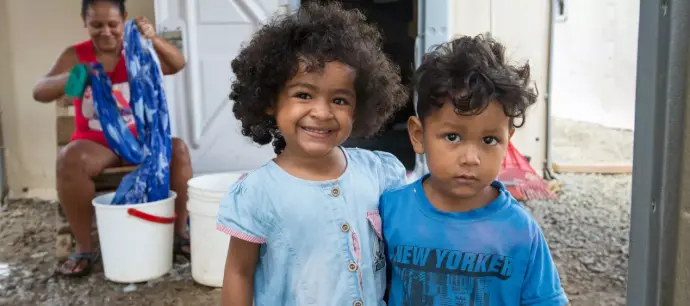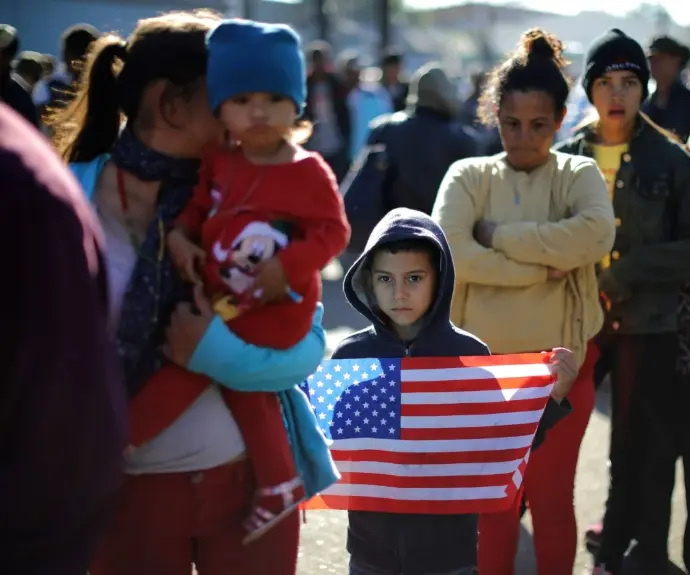Stateless people
Living without rights: stateless people, the invisible people
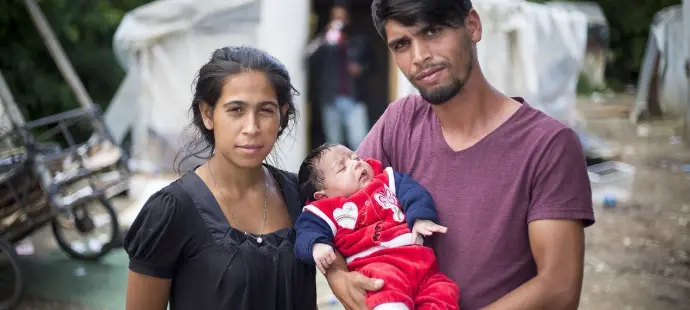
The term "stateless" refers to a person who is not considered a citizen by any state, according to its laws. This can occur for various reasons, such as loopholes in nationality laws, border changes, discrimination, or the loss or renunciation of citizenship without obtaining another. Stateless people are those whom no country recognizes as citizens. Because they are denied the right to a nationality, they are often unable to attend school, seek medical care, obtain employment, or marry.
Regarding "law," there is an international legal framework that seeks to protect stateless persons, primarily through the 1954 Convention relating to the Status of Stateless Persons and the 1961 Convention on the Reduction of Statelessness. These conventions establish basic rights for stateless persons, such as access to education, work, and social assistance, and obligations for States to prevent them from becoming stateless.
It is a deeply human and legal issue that touches on questions of identity, belonging, and fundamental rights. Stateless people face a life of disappointment and missed opportunities.
Their caregivers may be unable to register their birth or obtain a birth certificate or other official documents that prove their identity; without these, they cannot enroll in school. Moreover, if they do manage to enter school and receive an education, they may be barred from taking the necessary exams to attend university or from advancing in their studies unless they prove their identity.
As adults, they may be prevented from working in the formal sector, increasing the risk of abuse and exploitation, as they accept informal jobs that pay little. Furthermore, they cannot access public services, such as healthcare, so they must rely on expensive private clinics. They are also unlikely to be able to open a bank account, vote, obtain a passport for travel, acquire property, or even marry.
Stateless people cannot transmit their nationality to their children. When they cannot obtain nationality through their mother or father, or when the country in which they were born does not grant it, children also become stateless, so that statelessness is perpetuated for generations.
A stateless person does not have the nationality of any country. A refugee, on the other hand, is someone who, fleeing conflict and persecution, has crossed an international border in search of protection. While most refugees have a nationality, it is possible for a person to be both stateless and a refugee. However, most stateless people have never crossed an international border; in other words, they live in the country where they were born.
There are multiple factors that cause statelessness. In some cases, people are born stateless, but sometimes they become stateless.
1 - Gaps in nationality laws. Every country has laws that determine the process for acquiring nationality and citizenship. If these laws are not drafted and implemented properly, some people can fall into these gaps and become stateless. For example, when a girl or boy is born in a country where nationality is acquired by descent, but the mother and father have the nationality of another state and cannot transmit it.
2 - Discrimination. In many cases, statelessness results from laws and policies that discriminate based on a person's language, racial identity, or beliefs, resulting in protracted and large-scale statelessness, which can last for generations, in the country of birth. States also deprive people of a nationality when they incorporate discriminatory criteria into their laws; Thus, entire communities can become stateless from one moment to the next. In fact, the majority of the world's known stateless populations belong to minority groups.
Gender discrimination in nationality laws is also a major cause of statelessness; for example, in some countries, nationality laws prevent women from transmitting their nationality to their offspring in the same way as men. Consequently, children can become stateless when the father is stateless, or when his identity is unknown, missing, or deceased.
3 - New borders and states. The emergence of new countries or changes in borders can lead to statelessness. Certain groups may be left without a nationality, even when newly created countries offer nationality to all. In particular, for ethnic, racial, or religious minorities, it may not be easy to prove their connection to a country.
4 - Loss or deprivation of nationality. Citizens of some countries may lose their nationality if they live abroad for a long time.
In this sense, a person runs the risk of becoming stateless if they cannot prove their ties to their country. Not having a birth certificate can pose such risks, as it is a document that proves where a person was born and who their relatives are, providing the information necessary to verify nationality.
Stateless persons are entitled to the same fundamental human rights as everyone else, although in practice these rights are often limited due to a lack of legal recognition. According to the international human rights framework, their rights include:
- Right to life and security of person: Protection from violence, exploitation, or trafficking.
- Right to non-discrimination: Equality and non-discrimination in all contexts, including employment, education, and health.
- Right to a legal identity: Access to identity documents and birth registration to avoid perpetuating statelessness.
- Right to education: Equal access to educational opportunities and vocational training.
- Right to employment: Labor protection and the right to work under fair conditions.
- Access to basic services: Such as health care, housing, and social assistance.
- Right to freedom of movement: Movement without arbitrary restrictions.
- Right to nationality: Protection from statelessness and the ability to acquire a nationality.
The treatment of statelessness varies significantly across countries, depending on their legal frameworks and international commitments. Here are some key points:
- Countries with advanced policies: Some countries, such as Spain, have implemented clear procedures to recognize and protect stateless persons. For example, in Spain, a stateless person can request recognition of their status and access basic rights such as residency and work.
- Regions with significant challenges: In countries like Myanmar, statelessness affects entire communities, such as the Rohingya, who have been deprived of their nationality since 1982. This leaves them extremely vulnerable, facing discrimination and mass displacement.
- International commitments: Some countries have ratified the 1954 Convention relating to the Status of Stateless Persons and the 1961 Convention on the Reduction of Statelessness, committing to protect stateless persons and prevent further cases. However, many countries have yet to sign these treaties.
- Success stories: In Latin America, countries like Brazil have adopted measures to prevent statelessness, such as granting nationality to children born in their territory who would otherwise be stateless.
The countries with the largest stateless populations are Ivory Coast, Bangladesh, Myanmar, Thailand, Latvia, Syria, Malaysia, Russia, Kuwait, and Cambodia.
Statelessness is the situation of a person who is not considered a citizen of any country. This is because they are not recognized as such by any country under its legislation.
Some causes of statelessness include:
- The dissolution of a previous state
- Being an immigrant from a country that does not grant nationality to persons of foreign descent
- Being a child born abroad to parents from a country that does not grant nationality to children born abroad
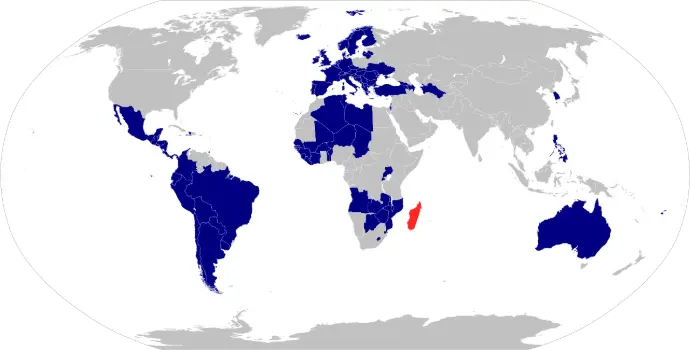
Members of the Convention relating to the Status of Stateless Persons: Signed and ratified
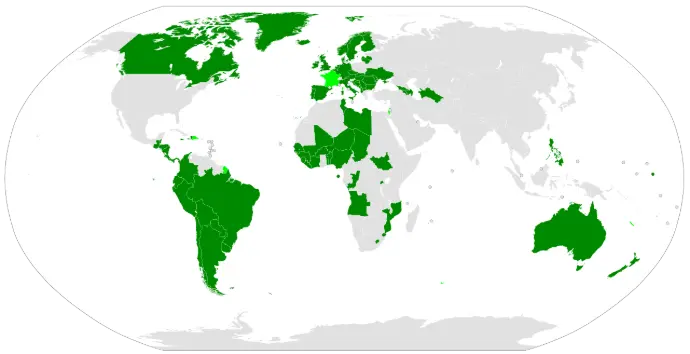
Members of the Convention on the Reduction of Statelessness: Signed and ratified
Signed but not ratified.
The Universal Declaration of Human Rights
Article 15
1. Everyone has the right to a nationality.
2. No one shall be arbitrarily deprived of his or her nationality nor of the right to change it.
Statelessness due to racism
Other people are deliberately rendered stateless – because they have been denied or stripped of their nationality as part of a process of racial, political, or ethnic persecution – and are often subsequently forced to flee to another country where they may remain stateless for many years. The Rohingya of Myanmar are a clear example.
Statelessness due to climate change
Despite progress, a debate has emerged about whether climate change could add millions of people to the ranks of the stateless. Legal scholars are already exploring solutions should some states that are currently islands on the map become completely submerged due to rising sea levels – although not everyone agrees that this would result in their citizens becoming stateless.


